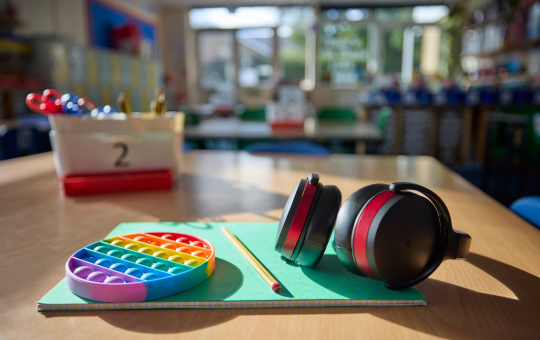The UK government has announced a significant expansion of the Partnership for Inclusion of Neurodiversity in Schools (PINS) programme, offering vital support for educators working with neurodivergent pupils. Backed by £9.5 million in funding, the initiative will be extended to a further 1,200 primary schools, reaching an estimated 300,000 pupils across England.
This move builds on the success of the initial PINS rollout, which supported 1,600 schools and helped improve attendance, behaviour, and pupil wellbeing. The programme equips teachers and school staff with the training, tools, and strategies needed to better understand and meet the needs of pupils with neurodivergent conditions, including autism, ADHD, and dyslexia.
Key features of the programme include:
-
Practical, in-school training from teams of clinical specialists and education professionals.
-
Enhanced strategies for early identification and intervention.
-
Support to foster stronger communication with parents and carers.
-
A focus on inclusive practice within the mainstream classroom.
Education Secretary Bridget Phillipson emphasised the government’s commitment to inclusion:
“We want a different future for children with SEND: inclusive and tailored to meet their needs, so everyone has the chance to achieve and thrive.”
This announcement has been welcomed by many specialists including the National Director for learning disability and autism at NHS England and the Chair of the Neurodivergence Task and Finish Group:
"It is fantastic news that thousands more neurodivergent children are to be better supported to thrive in mainstream primary schools. I visited a PINS primary school and saw first hand how health professionals can support schools in meeting the needs of neurodivergent children - I heard from parents who appreciated the support without the need for diagnoses or waiting lists."
"I welcome the expansion of the Partnerships for Inclusion of Neurodiversity in Schools (PINS) programme. It focuses on strengthening the knowledge, understanding and skills of those who support neurodiverse children and young people in mainstream schools. It is an excellent example of strong partnership work between education, health and parent carers to meet the needs of neurodiverse children and young people."
For educators, this expansion means increased access to professional development and evidence-informed approaches that can help create a more inclusive and supportive learning environment—not only for neurodivergent children but for all pupils.
The PINS programme aligns with broader SEND reforms aimed at ensuring schools are equipped to support children effectively, reducing reliance on Education, Health, and Care Plans (EHCPs) and specialist placements where needs can be met in mainstream settings.
For more information, visit the official announcement: More support for neurodivergent children in mainstream schools.














